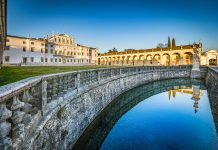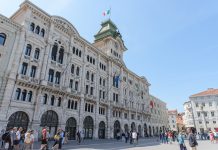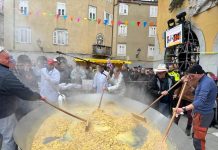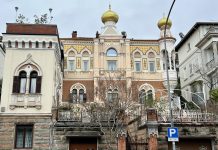by Nina Vaclvikova
Interview: FVG governor, Massimiliano Fedriga
For 125 years, the Università Popolare di Trieste has worked to make education accessible to all, particularly to residents from less affluent backgrounds. For the past six decades, it has also maintained a strong connection to Italian identity in a region shaped by multiple cultures, especially within communities in the former Yugoslavia.
This week, the institution marked its anniversary during a ceremony in the city’s municipal council hall, where it received a medal from the President of the Italian Republic. The honor recognized the organization’s long-standing efforts to support cultural life, Italian heritage and civic engagement. Though the Università Popolare has evolved over time, its mission of lifelong learning and cultural exchange has remained unchanged.
“We are convinced of one thing: culture is essential,” said Edvino Jerian, the organization’s president. “When people have access to culture, they are free to choose and free to decide — and that is the foundation of democracy.”
The event also highlighted the institution’s role in Italy’s foreign policy commitments. Daniele Rampazzo, a representative of the Ministry of Foreign Affairs, noted that the national budget renews annual funding for programs by both the Italian Union of Slovenia and Croatia and the Università Popolare di Trieste. The goal, he said, is to honor a historical obligation while reinforcing a bridge of dialogue across borders.
Today, the organization offers more than 40 courses for students of all ages — from foreign languages to art history, digital photography and applied arts — with a particular focus on promoting Italian culture beyond Italy’s northeastern frontier.
“It has been an important institution for the development of culture in our city,” said Stefano Pilotto, a professor of international relations at the University of Trieste, “and for the spread of the Italian language in areas where Italian identity and culture once faced significant pressure.”






























